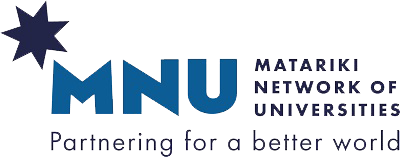MNU students and faculty come together to shape the new Global Citizenship Programme
25 April 2016
Students and faculty from six of the seven universities in the Matariki Network of Universities came together in Uppsala last week for the first workshop under the umbrella of the new Matariki Global Citizenship Programme. The workshop spanned four days and aimed to formally launch the new programme, to explore critical notions of global citizenship and what it could mean for the Matariki Network, to allow participants to share their work and experiences from different contexts, and to facilitate collaborative discussions around the future direction of the Global Citizenship Programme. The workshop used creative and interactive methods to engage both students and faculty and generated a number of proposals for projects to form the future content of the Global Citizenship Programme.
The planning of the workshop was a collaborative effort, led by key groups at Uppsala University and the University of Otago, but with input from workshop participants themselves. The workshop was primarily co-ordinated, designed and facilitated by staff at the Centre for Environment and Development Studies (CEMUS), an interdisciplinary and student-led education centre for sustainable development based at Uppsala University and Swedish University of Agricultural Sciences.
The workshop schedule included a mix of discussions and activities in small and larger groups, designed to encourage interaction and exchange among participants, and two thought-provoking lectures from invited speakers. Brian Palmer, from Uppsala University, spoke about the role of the university in global citizenship, while Audrey Bryan, from Dublin City University, spoke about different approaches to global citizenship education, but both sought to challenge assumptions about what global citizenship is, and what it requires of us as individuals and of our universities. The design of the workshop was much appreciated by participants, as was the opportunity for students and faculty to work in partnership in this exciting new initiative.
Follow-up discussions are now underway at each member institution, with a view to anchoring the Global Citizenship Programme within institutional structures, while continuing to develop the project ideas put forward at the workshop. The strong collaborative character of the workshop – between students and faculty, and across disciplines, backgrounds, and institutions – is a distinctive aspect of the initiative as a whole and one that we will be seeking to foster further as the programme evolves.
